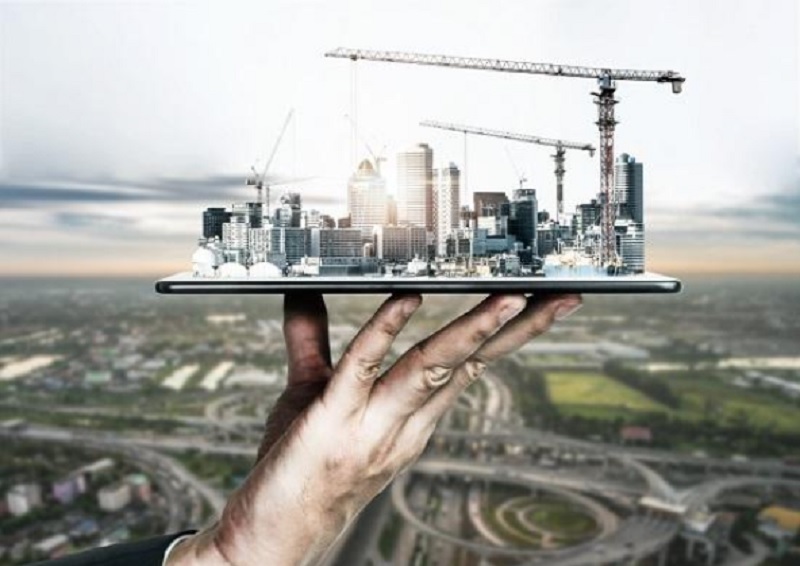
The building and construction sector is wrestling with numerous difficulties in technological progress, leading to the assumption that it needs to catch up in digital adoption compared to other industries globally. This outlook has engendered a long-lasting, self-propagating obstruction to the construction industry’s expansion.
The lack of technological innovation and digital implementation has negatively impacted every stage of construction projects. This stagnation has resulted in a dip in productivity levels compared to traditional sectors such as agriculture. Inefficient planning, uninformed decision-making, inaccurate cost estimations, and over-reliance on manual labour have all hampered the effective execution of construction projects. For successful implementation proper planning and use of right tools and machinery is required. You can look for such tools online also, such as Denver’s skid steer selections.
However, established firms and emerging players in the construction industry have started dabbling in technological integration. This experimentation has shown promising outcomes, with recent studies predicting a Compound Annual Growth Rate (CAGR) of 33.87% in AI implementation in the construction industry from 2020 to 2027.

Integrating artificial intelligence can alleviate some of the complexities of a construction project’s lifecycle, ranging from design and bidding to procurement, financial planning, labour operations, and building. It can also assist in post-construction aspects such as handover, maintenance, and health and safety management on the construction site.
To delve deeper, let’s examine the areas where AI solutions revolutionize the construction industry.
1. AI and generative design for improved building modelling:
The planning and modelling stage of a building involves numerous participants, including architects, engineers, and construction experts. Building Information Modeling (BIM) is a 3D modelling process that enables these parties to design their areas of expertise. AI-powered generative design improves this process by creating designs free of clashes and optimized according to various design criteria. The result is multiple design possibilities in a short period, leading to optimal outcomes and saving countless hours in manual iterations.
2. Preventing cost overruns with AI-powered financial planning and cost prediction:
Due to the extended timeline of construction projects, the cost of raw materials can fluctuate significantly. However, with the assistance of AI algorithms, past data can be analyzed to forecast prices throughout the project. This ensures more precise cost estimations and has the potential to decrease the likelihood of exceeding the budget.
3. Enhancing safety on construction sites with AI:
The construction industry is known to be one of the riskiest in safety, with workers being three to four times more prone to on-site accidents than other sectors. However, with the help of AI-powered safety applications, this risk can be significantly reduced. These applications come equipped with advanced features such as observation reporting and incident management that contribute towards ensuring overall safety at construction sites. By leveraging the power of AI, construction companies can create a safer working environment for their employees.
4. Substituting repetitive manual tasks with AI-powered robots to address labour shortages:
The construction industry often faces labour shortages, which is why AI-trained robots can be a great solution. These robots can serve as a workforce supplement, especially in areas that are hard to reach. As the cost continues to decline and their abilities improve, they can offer several advantages to a construction project.
5. Better project management and decision-making with cloud-connected business intelligence:
Bridging the information gap between corporate decision-makers and project managers on the construction site can be achieved through AI-based construction software with cloud connectivity. This technology allows for real-time progress checks and accurate data access, leading to more informed decision-making.
6. Easier maintenance with digital twin technology post-construction:
A digital twin is a precise 3D digital replica of the physical asset. It enhances Building Information Modeling by overlaying real-time data from various sources, enabling more informed decision-making and optimization. They can also assist in identifying faults or predicting preventative maintenance, among other benefits.
Conclusion
These are just a few areas where AI-based solutions are making significant strides in the construction industry.
Integrating artificial intelligence into the construction industry holds immense potential for enhancing efficiency and reliability. This is crucial for the sustained growth of the industry. As we advance, we can expect more construction businesses to adopt AI in their operations, significantly impacting the future of construction and the emergence of ‘Smart Construction.’
By leveraging AI-powered tools and technologies, construction companies can streamline their processes, reduce project costs, and deliver projects on time more accurately. As AI continues to evolve and become more sophisticated, it will undoubtedly transform the construction industry in ways we cannot imagine yet.
Author Profile
- I am the owner of the blog readree.com. My love for technology began at a young age, and I have been exploring every nook and cranny of it for the past eight years. In that time, I have learned an immense amount about the internet world, technology, Smartphones, Computers, Funny Tricks, and how to use the internet to solve common problems faced by people in their day-to-day lives. Through this blog, I aim to share all that I have learned with my readers so that they can benefit from it too. Connect with me : Sabinbaniya2002@gmail.com
Latest entries
 ArticleFebruary 9, 2026Lessons Learned from Managing More Than You Can Carry
ArticleFebruary 9, 2026Lessons Learned from Managing More Than You Can Carry ArticleJanuary 27, 20265 Practical Ideas for Office Swag That Boosts Moral
ArticleJanuary 27, 20265 Practical Ideas for Office Swag That Boosts Moral GAMESJanuary 21, 2026A Beginner’s Guide to Playing Blackjack Online
GAMESJanuary 21, 2026A Beginner’s Guide to Playing Blackjack Online BlogJanuary 9, 2026Best Face Swap Online Video Tools of 2026
BlogJanuary 9, 2026Best Face Swap Online Video Tools of 2026